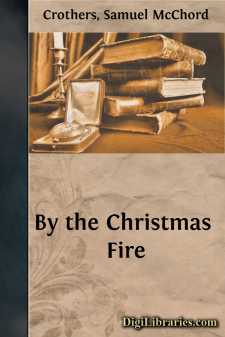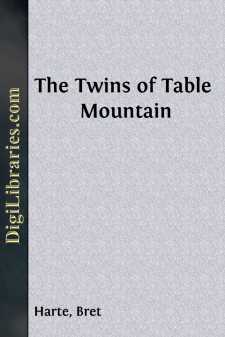Literary Collections
- American 84
- Ancient, Classical & Medieval 14
- Asian 1
- Australian & Oceanian 1
- Canadian 55
- Continental European 121
- English, Irish, Scottish, Welsh 179
- Essays 160
- General 24
- Letters 46
- Middle Eastern 1
Literary Collections Books
Sort by:
by:
Honore de Balzac
I In September, 1835, one of the richest heiresses of the faubourg Saint-Germain, Mademoiselle du Rouvre, the only daughter of the Marquis du Rouvre, married Comte Adam Mitgislas Laginski, a young Polish exile. We ask permission to write these Polish names as they are pronounced, to spare our readers the aspect of the fortifications of consonants by which the Slave language protects its...
more...
by:
Robert Browning
THE LETTERS OF ROBERT BROWNING 1845-1846 New Cross, Hatcham, Surrey.[Post-mark, January 10, 1845.] I love your verses with all my heart, dear Miss Barrett,—and this is no off-hand complimentary letter that I shall write,—whatever else, no prompt matter-of-course recognition of your genius, and there a graceful and natural end of the thing. Since the day last week when I first read your poems, I...
more...
by:
George Gissing
CHAPTER 1 The sea-wind in his hair, his eyes agleam with the fresh memory of Alpine snows, Will Warburton sprang out of the cab, paid the driver a double fare, flung on to his shoulder a heavy bag and ran up, two steps at a stride, to a flat on the fourth floor of the many-tenanted building hard by Chelsea Bridge. His rat-tat-tat brought to the door a thin yellow face, cautious in espial, through the...
more...
A MIST WRAITH The autumn afternoon was fading into evening. It had been cloudy weather, but the clouds had softened and broken up. Now they were lost in slowly darkening blue. The sea was perfectly and utterly still. It seemed to sleep, but in its sleep it still waxed with the rising tide. The eye could not mark its slow increase, but Beatrice, standing upon the farthest point of the Dog Rocks, idly...
more...
As I sit by my Christmas fire I now and then give it a poke with a bayonet. It is an old-fashioned British bayonet which has seen worse days. I picked it up in a little shop in Birmingham for two shillings. I was attracted to it as I am to all reformed characters. The hardened old sinner, having had enough of war, was a candidate for a peaceful position. I was glad to have a hand in his reformation. To...
more...
by:
Karl Marx
A CRITICISM OF THE HEGELIAN PHILOSOPHY OF RIGHT As far as Germany is concerned the criticism of religion is practically completed, and the criticism of religion is the basis of all criticism. The profane existence of error is threatened when its heavenly oratio pro aris et focis has been refuted. He who has only found a reflexion of himself in the fantastic reality of heaven where he looked for a...
more...
My Dearest Carreta, I arrived this day at Venice, and though I am exceedingly tired I hasten to write a line to inform you of my well-being. I am now making for home as fast as possible, and I have now nothing to detain me. Since I wrote to you last I have been again in quarantine for two days and a half at Trieste, but I am glad to say that I shall no longer be detained on that account. I was...
more...
by:
Andrew Lang
CHAPTER I IN WHICH JOHN SOWS THE WIND John Varey Nicholson was stupid; yet stupider men than he are now sprawling in Parliament, and lauding themselves as the authors of their own distinction. He was of a fat habit, even from boyhood, and inclined to a cheerful and cursory reading of the face of life; and possibly this attitude of mind was the original cause of his misfortunes. Beyond this hint...
more...
by:
Bret Harte
CHAPTER I.A CLOUD ON THE MOUNTAIN.They lived on the verge of a vast stony level, upheaved so far above the surrounding country that its vague outlines, viewed from the nearest valley, seemed a mere cloud-streak resting upon the lesser hills. The rush and roar of the turbulent river that washed its eastern base were lost at that height; the winds that strove with the giant pines that half way climbed...
more...
by:
Bret Harte
CHAPTER I. Where the San Leandro turnpike stretches its dusty, hot, and interminable length along the valley, at a point where the heat and dust have become intolerable, the monotonous expanse of wild oats on either side illimitable, and the distant horizon apparently remoter than ever, it suddenly slips between a stunted thicket or hedge of "scrub oaks," which until that moment had been...
more...











